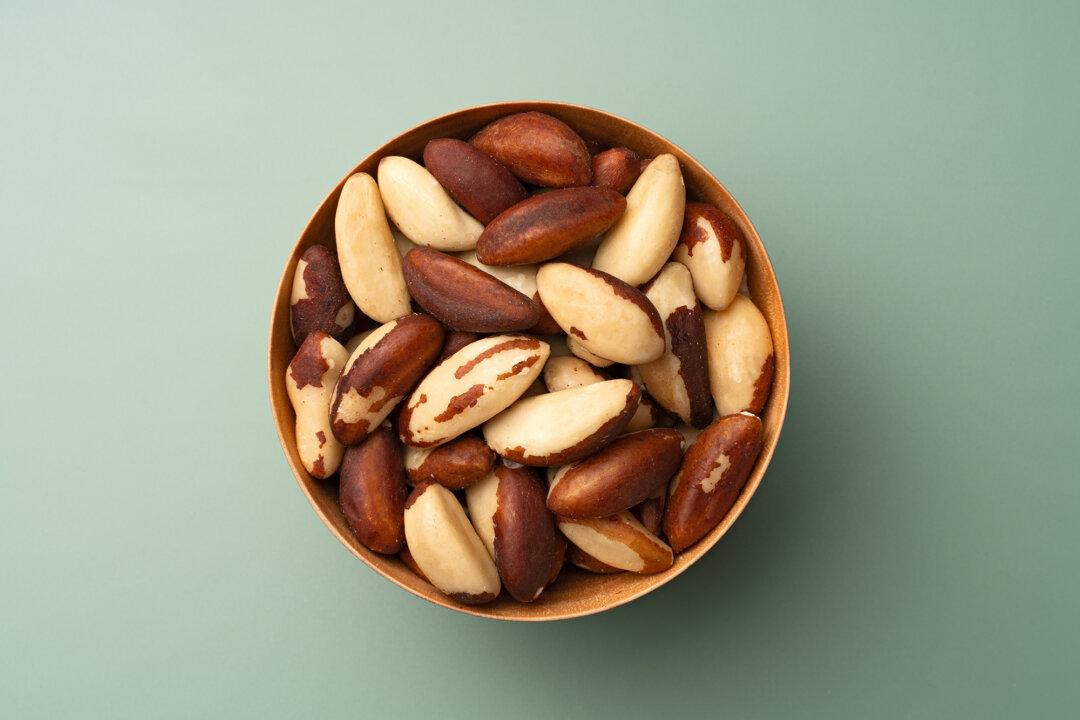You might recognize chia seeds as the tiny black specks that end up in smoothies, yogurts, or occasionally stuck between your teeth. Despite their unassuming size, these little seeds are packed with fiber, omega-3s, and antioxidants—making them more than just a topping.
Why Chia Seeds Deserve a Spot in Your Diet
Chia seeds are a compact source of essential nutrients that help fuel heart and digestive health.Heart Health Benefits
“Chia seeds play a therapeutic role in managing chronic diseases,” Mary Curristin, a nutritionist at ART Health Solutions, told The Epoch Times.One of the standout qualities of chia seeds is their high omega-3 fatty acid content, which contributes to their reputation as a “powerhouse of omega fatty acids.”
The omega-3s found in chia seeds help reduce inflammation, benefiting conditions such as heart disease, she said. Inflammation contributes to plaque formation that blocks arteries in coronary artery disease.
Chia seeds also support cardiovascular health by reducing oxidation, cholesterol, and blood pressure.
Because chia seeds are high in omega-3 fatty acids, they improve heart health by decreasing inflammation and improving blood circulation. These benefits can help maintain a normal heart rhythm and decrease the risk of arrhythmias or irregular heartbeats.
The soluble fiber in chia absorbs water and forms a gel-like substance, helping to lower cholesterol levels and regulate blood sugar, both important for heart health.
Digestive Health Benefits
Chia seeds are a rich source of dietary fiber, which provides important benefits for digestive health. The fiber in chia seeds increases stool volume, helping to prevent conditions such as diverticulosis—a condition marked by weakness in the colon walls— and it aids in treating constipation by making stools easier to pass.A Strong Nutritional Foundation
Chia seeds contain more protein than wheat, oats, or quinoa, making them an underutilized pseudocereal—especially since they’re naturally gluten-free. Pseudocereals are seeds of nongrass plants akin to cereal grains, including quinoa and buckwheat, which can be tolerated by those with gluten sensitivity.With their potent mix of protein, fiber, and healthy fats, chia seeds are a simple way to add more nutrition to your diet.
Chia seeds contain 30 to 34 grams of dietary fiber per 100 grams, with 85 percent and 93 percent being insoluble fiber and 7 percent to 15 percent soluble fiber.
Because of their high fiber content, chia seeds can contribute significantly to meeting the recommended daily fiber intake of 25 to 35 grams for adults.
Additionally, omega-3s support the parasympathetic nervous system (the “rest-and-digest” state), helping to strengthen the heart’s defenses.
Chia seeds also contain numerous fundamental minerals and are abundant in calcium, magnesium, iron, selenium, copper, potassium, phosphorus, and manganese.

How to Enjoy Chia Seeds
Chia seeds are incredibly versatile, making it easy to include them in a variety of meals and snacks throughout the day. Here are some creative and simple ways to enjoy them:- Chia pudding: Curristin loves a chia pudding for a nutrient-packed breakfast or snack. Her go-to recipe is simple: 3 tablespoons of chia seeds, 1/2 cup of Greek yogurt, 1 cup of almond milk, 1/2 teaspoon of cinnamon, 1 teaspoon of honey, and a topping of mixed berries. Let it sit in the fridge for a few hours or overnight to thicken into a creamy pudding.
- Yogurt and porridge: Arévalo enjoys a simple chia recipe—she adds 1 teaspoon of chia seeds to a cup of yogurt for a satisfying crunch. You can sprinkle chia seeds over porridge or salads to add a little crunch and nutritional punch.
- Soups and sauces: Chia seeds work well as a thickening agent in soups or sauces. They absorb liquid and expand, adding texture and nutrients without changing the flavor.
- Chia water: Mix 1 tablespoon of chia seeds with 1 cup of water, stir, and let the seeds soak for 10 to 15 minutes. This creates a hydrating, nutrient-packed beverage with a gel-like consistency.
- Chia jam: Chia seeds make a great natural thickener for homemade jam. Combine fresh fruit with chia seeds, a sweetener of your choice, and a little lemon juice. Let the mixture sit for a few hours to allow the chia seeds to absorb the liquid and create a jam-like texture.
- Egg replacement: Chia seeds can be used as an egg replacement in baking. Mix 1 tablespoon of chia seeds with 3 tablespoons of water and let the mixture sit for 5 to 10 minutes to form a gel. This works as a substitute for one egg in most recipes.






